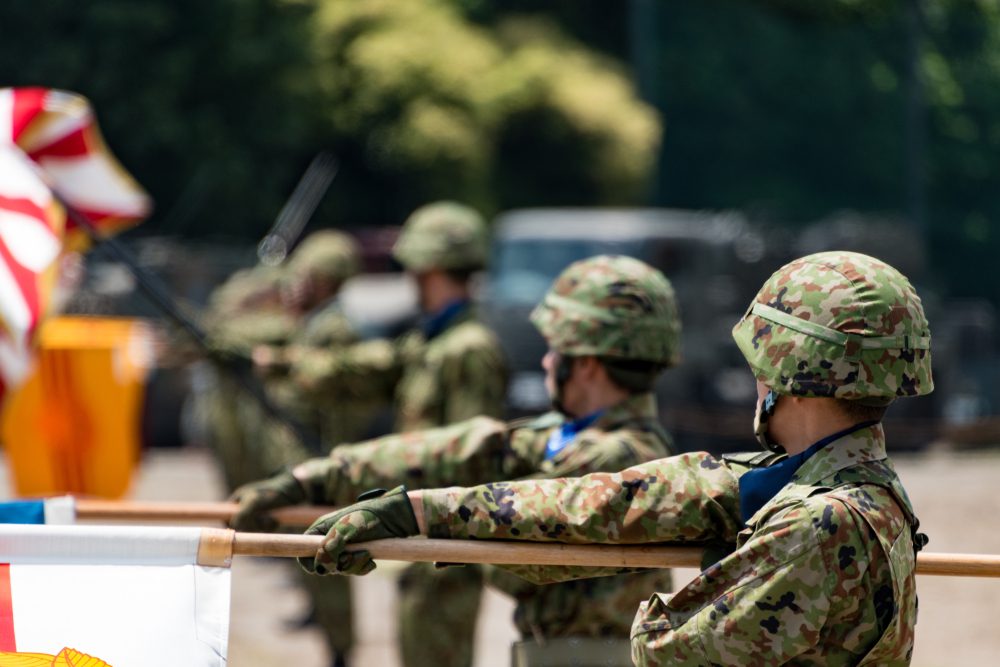
Japan is gearing up for the nation’s biggest rearmament since World War II. On Friday, December 16th, the country announced its plans for spending some $320 billion extra on military expenses over the next five years.
Kyodo News reports that Prime Minister Fumio Kishida proposed Japan’s new defense strategy—its first since 2013—in a larger context of the growing threat Japan perceives in the region, primarily from China and North Korea.
Kishida, who described Japan and its people as being at a “turning point in history,” said the build-up was his answer to “the various security challenges that we face.”
Since the start of the Russo-Ukrainian war in February, Japan has been fearing that it could embolden Beijing to take Taiwan (which Beijing considers to be part of China) by force.
A Beijing-controlled Taiwan could then expose the contested Senkaku islands to Chinese predation, disrupt the supplies of advanced semiconductors (Taiwan being their main manufacturer), and allow the great regional power to control the sea lanes that bring oil from the Middle East.
With this doubling of its military budget—going from a self-imposed 1% to 2% of the country’s gross domestic product—Japan would also meet the standard required by the NATO military alliance of which it is part.
As a result, the defense ministry’s budget will amount to about one-tenth of all public spending at current levels, and make Japan the world’s third-biggest military spender after the U.S. and China, based on current budgets. With the former, it would cooperate more closely, together with other allies, to deter threats to the current order.
Such a change for Japan—which had renounced the right to wage war and adopted a stance of military non-involvement in international disputes—illustrates well how much the geopolitical reality has changed in recent years.
While China in 2013 was still being called “a strategic partner,” it now has become somewhat of a specter viewed as Japan’s “greatest strategic challenge.” Tokyo has revised its appraisals of North Korea (a “graver, more imminent threat than before”) and Russia (a “serious security concern”) as well, and has made a provision within its Constitution that would allow it to use missile strikes at another country’s territory under three conditions only: if Japan itself is attacked, if an attack on a friendly nation threatens Japan’s survival, or if there are no other appropriate means to repel an attack.
Any use of force is to be kept to a minimum, it further stipulates. The policy is deterring in nature. The government needs to tread carefully since the Constitution says that Japan can act only in self-defense—a fact used by pacifist voices to criticize the government’s newest strategy.
To put such concerns to rest, Japan has therefore pledged to stick to its commitment to this “exclusively self-defense-oriented policy” and “not to become a military power.”
For it to be effective as a deterrent (or counter strike in the above scenarios if needed), Japan will be purchasing ‘standoff missiles,’ extending the range of Japan’s self-defense forces’ own surface-to-ship guided missiles and making it possible to hit mainland China.
To further bolster its strength in this area, the country will also be procuring Raytheon’s U.S.-made Tomahawk cruise missiles (which have a range of about 1,600 kilometers). In addition, Japan will stockpile spare parts and other munitions, expand transport capacity, and develop cyber warfare capabilities.
Japan’s war-averse Constitution, which was imposed by allied powers after its WWII defeat, had seen efforts to alter it, a process given fresh impetus after the July 8th assassination of former Prime Minster Shinzo Abe, who was himself a vociferous proponent of Japan’s right to maintain a strong military).
This had long been considered anathema, as the Japanese feared that revanchist militarism would start to hold sway in its politics.
Japan’s efforts to satisfy its own security concerns have drawn criticism from Chinese officials. In reaction to its neighbor’s planned military build-up, the Chinese embassy in Japan has said that Tokyo’s new security strategy was built on false claims about China’s military activities.
Chinese Foreign Ministry Spokesperson Wang Wenbin said that Japan’s new defense policy
ignores facts, deviates from its commitment to China-Japan relations and the common understandings between the two countries, and groundlessly discredits China’s defense building and normal military activities.
He added that “the two countries are cooperative partners and do not pose a threat to each other. Hyping up the ‘China threat’ to find an excuse for its military build-up is doomed to fail.”
